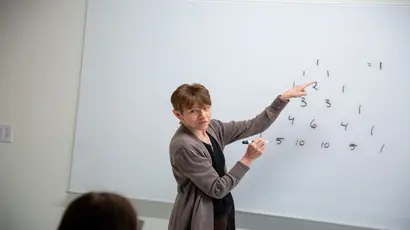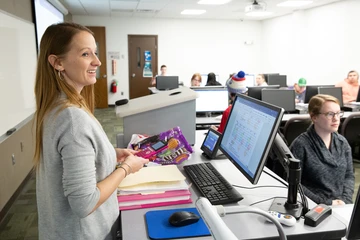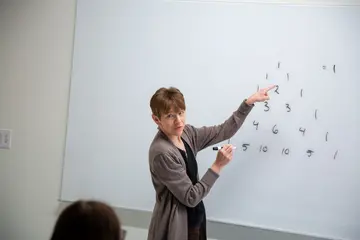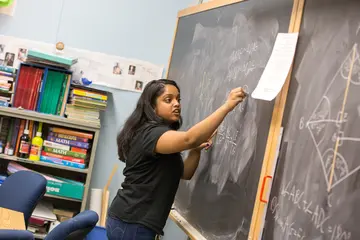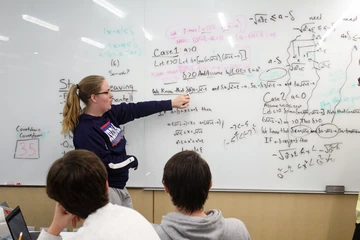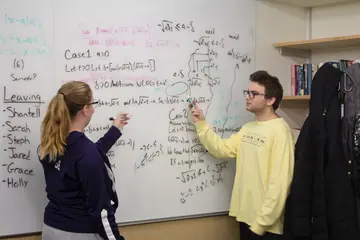Differentiate Yourself with a Math Degree
Fredonia's Bachelor of Science in Mathematics opens the door to boundless opportunities. Designed to cultivate deep conceptual understanding, technical prowess, and critical reasoning, our mathematics major equips you with the skills smart employers and top graduate schools seek.
Mathematics Degree Outcomes
- Computational Mastery: Gain expertise in the latest mathematical software and technologies, enabling you to tackle real-world data challenges.
- Exceptional Problem-Solving Skills: Hone your ability to analyze complex problems, devise innovative solutions, and think critically.
- Adaptability and Versatility: Prepare for a wide range of career paths, from data analysis to cryptography to education, by developing a diverse skill set.
- Research Proficiency: Engage in collaborative research projects, learning to design experiments, collect and interpret data, and draw meaningful conclusions.
- Preparation for Graduate Study: Gain the strong academic foundation needed to pursue advanced degrees in mathematics, statistics, or related disciplines.
Maximize Your Opportunities
Whether you aspire to pursue a career as a data analyst, cryptographer, educator, or mathematician, our comprehensive curriculum provides the foundation for your ambitions. Dive into advanced topics, hone your problem-solving abilities, and become a sought-after asset in any field.

